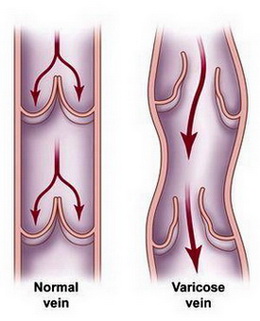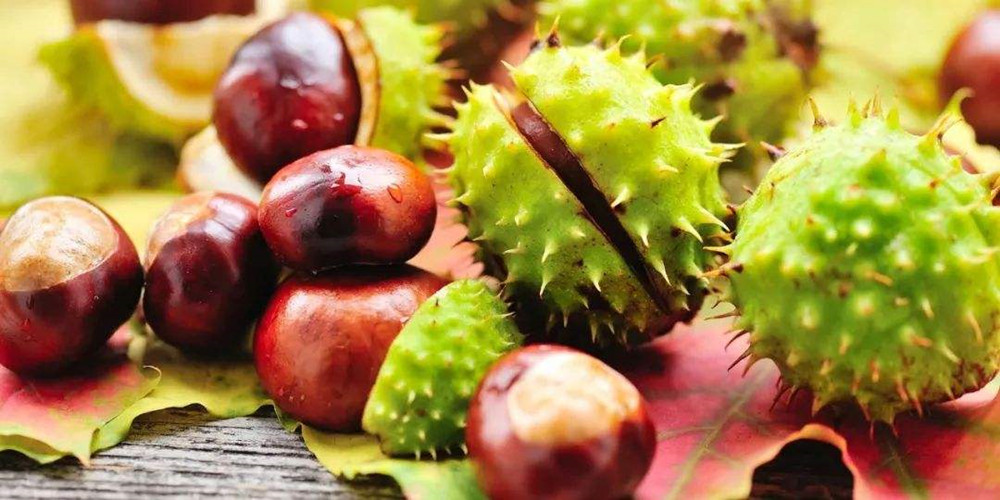Varicose veins of the lower extremities are an ancient disease, which has been ignored as an “inevitable trend of normal aging” for many years. Superficial varicose veins of lower extremities are most common in a great saphenous vein(GSV). When serious, can appear limb oedema, pigmentation cool-headedness, skin eczema, deep vein thrombosis, venous ulcer and varicose vein rupture hemorrhage. According to WTO, the prevalence rate of varicose veins in adult males and females is 10% ~ 15% and 20% ~ 25% respectively. Weak venous blood walls, incomplete venous valve closure and increased venous pressure are considered to be the main causes of varicose veins.
Herbs are a safe way to treat varicose veins because they have many benefits and can help prevent the recurrence of the disease. For example, horse chestnut seed extracts are also recommended as they can be used as a supplement to reduce swelling, itchiness, and pain; Sophora japonica and chamomile are both effective options for relieving the symptoms of varicose veins; Butcher’s broom and chamomile can be applied topically to the affected area to reduce pain and discomfort. They can also be taken orally and are effective for preventing the breakdown of capillaries. These herbs can be taken either in the form of a tea, powder, or tincture. To ensure success, you need to follow your doctor’s instructions and stick to a strict diet. If you are unsure about how to choose the right herbs for varicose veins, read this article first! It may be the best choice for you.
Table of Contents
ToggleHorse Chestnut
Horse Chestnut seed extract is the most commonly used herbal remedy for venous insufficiency. Aescinin is its main active ingredient, belonging to triterpenoid saponins, which can reduce capillary permeability, increase venous tension and promote venous blood reflux. The results showed that the horse chestnut tree can significantly reduce the edema, pain and heaviness of the lower limbs. The active ingredients have been identified. Collectively known as Aescin, which have been shown to reduce fluid leakage from pressurized blood vessel walls.
Gotu Kola
Gotu kola is another herbal treatment for varicose veins. It contains a compound called triterpenes that helps stimulate the production of collagen and connective tissue. The dried leaves of gotu kola can be used to prepare an infusion. It is recommended to make an infusion from a teaspoon of gotu kola leaves and steep it in water for 10 minutes. This herbal remedy is safe to use, but it should not be used by those with liver disorders.
Rutin(Sophora Japonica, Buckwheat, Citrus fruits)
Oxerutins, derived from natural bioflavonoids called Rutin, are specifically used to treat varicose veins and their associated venous problems. Rutin is a natural bioflavonoid found in citrus fruits and buckwheat and Chinese sophora trees. Doctors do not know whether rutin derivatives are better than other bioflavonoids in treating these conditions, but it is the most well-studied preparation so far. Research suggests buckwheat tea may also be effective in treating varicose veins, which medical experts speculate may be due to its rutin content. Other citrus-derived bioflavonoids, such as Diosmin and Hesperidin, are also effective against varicose veins.
Red Vine Leaf
Red grape leaf extract has also been tried in the treatment of chronic venous insufficiency. One study found that taking 360mg of red grape leaf extract orally daily reduced edema, pain and other symptoms. Side effects are mainly limited to mild gastrointestinal discomfort and occasional headache. Blood tests and physical examinations did not show any adverse reactions. At present, medical experts do not recommend red grape leaves for pregnant or lactating women or patients with serious liver and kidney diseases.
Butcher’s Broom
Butcher’s broom(Ruscus aculeatus) is another effective herb for varicose veins. Butcher’s broom extract is an excellent solution to treat varicose veins because it contains ruscogenins, which help ease inflammation. You can get butcher’s broom extract in a supplement form, or apply it topically to the affected area to make it even more effective. Its high levels of ruscogenin help to restrict inflammation from damaging the veins. It also contains excellent minerals and helps to relieve varicose veins. However, a combination of herbs for this purpose is the most effective way to treat varicose veins. If you are taking one or both of these herbs in combination, make sure you speak with a physician before starting any new supplements.
Butcher’s broom is an effective herb for varicose veins. It is a highly effective herb for treating the condition because of the compound ruscogenin. This compound inhibits inflammation and helps to eliminate the diseased veins. It contains many beneficial minerals and is considered a safe herbal remedy for varicose veins. The best herbs for varicose veins will have a positive effect on the structure of the venous system.
Herbal remedies for varicose veins are available in the form of teas and tinctures, but they should be used in conjunction with a healthy diet and lifestyle to ensure optimal results. Herbal treatments are potent, warning: Some of the more dangerous conditions, such as phlebitis or thrombosis, can also produce symptoms similar to varicose veins. Therefore, it is best to check with your phlebologist or therapist before self-medicating with herbal natural remedies.
- Dandelion Extract: What It Is, Benefits, Uses and Side Effect - April 23, 2024
- Is Berberine Extract Help For Weight Loss? - April 11, 2024
- Why Is Pysllium Husk Powder A Popular Meal Replacement Ingredient? - April 3, 2024






